Industry heads urge suppliers to master the quality mantra
The annual ACMA Convention sees captains of the automobile industry exhort the Indian component supplier community to heighten their focus on quality, make zero-defect products a mission and think global too. An ACMA-McKinsey study also details how the domestic component industry can gear up for six impending discontinuities.
Three days after the Automotive Component Manufacturers Association (ACMA) held its 59th Annual Convention in New Delhi on September 6, the Society of Indian Automobile Manufacturers (SIAM) released the August 2019 sales/despatch numbers. Not surprisingly, the red ink is splashed everywhere, with sales plunging across all vehicle segments. While both SIAM and ACMA have called for a reduction of GST to revive auto sales, it remains to be seen if the GST Council, which is to meet in Goa on September 20, will accede to their request.
From the point of view of the component industry, which is heavily reliant on the fortunes of domestic vehicle manufacturers, the ongoing slowdown is proving to be a troubling time. Suitably enough, the theme for the annual session was ‘Future of Mobility – Embracing the Discontinuity’ with all stakeholders — captains of the industry representing all the key Tier 1 and 2 suppliers, OEMs and government officials — present. The mood was understandably sober as every delegate in attendance was keen to understand what industry experts and policymakers had to say on the way forward, particularly how long the downturn will persist, how industry can tackle this unprecedented challenge, the policy response from the government, OEMs perspectives around production and inventory management, and the smoother rollout of BS VI-compliant vehicles starting April 1, 2020.
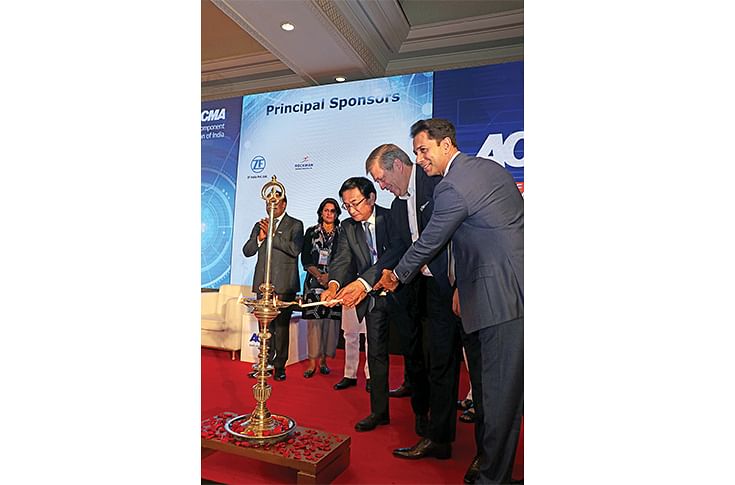
Speaking in the inaugural session, Ram Venkataramani, president, ACMA and director, Amalgamations Group, said, “Indian suppliers should use these changing times to shift from labour arbitrage to knowledge arbitrage. We need to make a shift from 'Make in India' to 'Innovate in India', to ensure higher profitability through higher exports."
Referring to the deliberations at the SIAM Convention a day earlier, Venkataramani said, “Change is inevitable, which is either driven by government policies or by consumer preference. Shared mobility, electrification and usage of alternate fuel are some of the indicators that could impact component suppliers' business significantly. Given our status of an intermediary industry, we need to stay nimble and agile, building small empowering teams, which can focus on building their competence and capabilities as opposed to training only to make products.”
Shobana Kamineni, past president, CII and executive vice-chairperson, Apollo Hospitals Group; Ram Venkataramani, president, ACMA and director, Amalgamations Group; Anurag Thakur, Minister of State for Finance; and Arjun Ram Meghwal, Minister of State for Heavy Industries
He said that ACMA currently runs 23 types of powerful cluster programs and in 2018 covered 200 companies. Three of these programs focus on building competencies and techniques to quickly build new products and enter new markets. Another three focus specifically on Industry 4.0 while others target areas where India has traditionally been weak, such as logistics management. “Without these changes, we will continue to have lower profitability than the international suppliers,” he said.
Sharing the OEM perspective, Rajan Wadhera, president, SIAM and president (Automotive Sector), Mahindra & Mahindra, said, “The automotive industry has been the shining beacon of Indian engineering prowess and is one of the strong pillars of economic growth. The process of transitioning from BS-IV to BS-VI is worrying and requires help from the government in ensuring calculated decisions about the production before a complete ban.”
Unwavering supplier focus on quality needed
Kenichi Ayukawa, managing director, Maruti Suzuki India, said, “Nearly 70 percent of our cars are ‘made’ in the factories of our suppliers. Your challenges are our challenges. Your strengths are our strengths. Developing in-house R&D capabilities are vital if India Auto Inc is to be a global leader.”
Maruti Suzuki India's Kenichi Ayukawa: "The top management of suppliers must commit itself towards manufacturing zero-defect products."
Highlighting the importance of quality components, he said, “With the new business environment, we have to play a much bigger role. The first area is quality. It is time for India now to manufacture zero-defect products. The top management of suppliers must commit itself towards manufacturing zero-defect products. The root-cause analysis of different parameters for man, machine, methods, and materials clearly shows that more than half of the defects are due to human error. This clearly means we are underestimating the importance of training and skilling our people. Quality has to match the expectations of the customer, as he/she is the final judge of our product. To satisfy customers, it is our responsibility to enhance the levels of the complete ecosystem including OEMs and suppliers across Tier 1, 2 and 3 levels.”
Mahindra & Mahindra's Dr Pawan Goenka: "I thank all suppliers as it is only because of them that we can launch BS VI vehicles as per schedule."
He also pointed out that the next big challenge for Tier 1 suppliers is developing the capabilities of their Tier 2 and 3 suppliers. "It is important to take ownership of the capabilities and quality of your suppliers, as their capabilities are the foundation of the strength of the Indian automobile industry. The great opportunity to win in the war of tomorrow lies in developing in-house R&D capabilities if India is to be competitive globally, This is, however, a long- drawn process and the result comes slowly. We have to be patient and stay committed."
Tata Motors CEO exhorts suppliers to target and achieve top-notch quality
Addressing the supplier fraternity, Guenter Butschek, CEO and managing director, Tata Motors, said, “This year is going to be a game-changer. We have to think of strategic partnerships. We have to be agile. Let us embrace future mobility by being globally competitive, customer-centric and being ahead of the curve.”
Tata Motors' Guenter Butschek: "Customers have zero tolerance on quality and high attention to features, design. The bar has been raised."
“In the new millennial space, the consumer is spoilt for choice and the buying decisions are being made online. The turnaround time expectations have significantly come down, there is zero-tolerance on quality and high attention to features and design. So the bar has been raised, as we raise the bar to you. The new rule of the game is to get exclusive by being inclusive.”
Touching upon the crucial BS IV to BS VI transition, he said, “All of us are at the final stage of BS IV to BS VI transition and we all have our fingers crossed in what way the consumer is going to behave in the coming months. The focus should be, as we call it in Tata Motors, is ‘BS-IV mission zero.’ While we cannot be accurate in our stock management, our best efforts should be to balance the phase-in and phase-out. The trick lies in how close we are connected to the market and how quickly we align ourselves to changing dynamics.”
Managing the slowdown
Kicking off the special knowledge session on 'Managing the Downturn', Shivanshu Gupta, senior partner, McKinsey & Company, said, “The current downturn has percolated down across all the segments of industry. Three factors have largely dominated — the NBFC liquidity crunch, the higher acquisition cost of the vehicles and weak consumer sentiment.”
ACMA's Ram Venkataramani: "We need to shift from 'Make in India' to 'Innovate in India' to ensure higher profitability through higher exports."
Gupta said, “Looking at product modularity by instituting a zero-defect culture, optimising product portfolio, re-imagining the supply chain and secular fixed cost borrowing are the areas companies should focus on.”
Reminding the supplier community on what not to do in a downturn, Gupta said, “Avoid dishonouring commitments, or getting into unsustainable positions where we continue to drop the market, which become difficult when the market picks up and you want to come back to a sustainable level. And lastly, reducing critical investments whether it is at the front-end, business development or on R&D. We have to take the thorough cycle mindset — the stronger efforts we put going in, the stronger we come out.” He assured suppliers that despite the current doom and gloom in the industry, the long-term growth story of India is intact as all the macro-economic indicators look all positive and the fundamentals are in place.
Readying for six continuing discontinuities
The convention was where ACMA and McKinsey & Co released a comprehensive component industry white paper titled, ‘Embracing the discontinuities in India’s auto component industry’.
L-R: Vinnie Mehta, director-general, ACMA; Aurobindo Satpathy, senior partner, McKinsey & Co; Shivanshu Gupta, senior partner, McKinsey & Co; Shobana Kamineni, past president, CII; Rajan Wadhera, president, SIAM and president (Automotive Sector), Mahindra & Mahindra; Ram Venkataramani, president, ACMA & director, Amalgamations Component Group; Arjun Ram Meghwal, Minister of State for Heavy Industries; Anurag Thakur, Minister of State for Finance; Ashok Taneja, MD and CEO, Shriram Pistons & Rings; Jayant Davar, vice-chairman and MD, Sandhar Technologies; Deepak Jain, ACMA's new president and chairman and MD, Lumax Industries; Kenichi Ayukawa, MD and CEO, Maruti Suzuki; and Guenter Butschek, MD and CEO, Tata Motors release the ACMA-McKinsey study on 'Embracing the Discontinuities in India's Component Industry.'
The robust growth of the automotive components industry of over 9 percent per annum between FY2009 and FY 2019 has been disrupted by a slowdown in automobile sales over the past several months. Concerns about the future of the industry are foremost among all stakeholders. How can auto component manufacturers best manage the ongoing slowdown? The detailed report touches on some actions that could help.
While the industry did not fully anticipate the current discontinuity, it can anticipate and prepare for six impending discontinuities which form the focus of this report. Besides proposing strategic imperatives for auto component manufacturers in the emerging landscape, the report also outlines what other stakeholders (the government, industry bodies and original equipment manufacturers, or OEMs) can do support the component industry in the future.
India is seen as a global sourcing hub of components for major OEMs and Tier 1 suppliers. Ninety of the world’s top 100 auto component suppliers have a presence in India, and the country has also cut down its dependence on imports with high levels of localisation — all factors that position the auto component industry for growth.
L-R: Vinnie Mehta, DG, ACMA; Dr Pawan Goenka, MD, M&M; Ashok Taneja, MD & CEO, Shriram Pistons & Rings; Ram Venkataramani, past president, ACMA & director, Amalgamations Component Group; Dr Asha Ram Sihag, Secretary, Department of Heavy Industry; Nikunj Sanghi, past president, FADA and MD, JS Fourwheel Motors and Shivanshu Gupta, senior partner, McKinsey & Company.
However, despite these positives, the liquidity crunch crippling non-banking financial companies (NBFCs), the rising acquisition cost for vehicles and weakened consumer sentiment have hit growth. It can be hoped that recently announced government measures, the onset of the festive season, and pre-buying in the run-up to the BS VI mandate in April 2020 will offer some respite for India Auto Inc. Macroeconomic indicators such as growth in GDP, private consumption and rising urbanisation also inspire confidence for the future growth of the sector.
Besides anticipating relief from these quarters, component makers could also address the downturn in the following ways:
- Optimising parts complexity and modularising products.
- Enhancing quality —aiming for zero defects and higher yields.
- Optimising their portfolio
- Developing optimal inventory control and building transparency.
- Revisiting the organisation structure to enhance efficiency.
Beyond overcoming the current slowdown, component makers could also anticipate and prepare for six discontinuities on the horizon:
- The accelerated enforcement of emission and safety standards could make the world a level-playing field for Indian component manufacturers.
- The government and private sector thrust on electrification is likely to ramp up sales of electric vehicles (EVs), with varying outcomes for different players.
- The continued growth of shared mobility could see the emergence of a new customer segment — fleet aggregators and owners.
- The growing demand for connected vehicles as a 'must-have' might change the composition of vehicles, with electronics and software (rather than mechanical components) dominating the mix.
- The global consolidation of auto OEMs could drive demand up or down for component manufacturers, lead to greater standardisation and enable access to new markets in the footsteps of these OEMs.
- The digital and analytics–related transformation of core areas of the business could unlock EBITDA growth.
Five key areas to focus on to succeed in components
With these discontinuities shaping the future, five focus areas emerge as relevant for auto component manufacturers:
- Rethinking the product strategy by de-risking the portfolio.
- Adopting a non-conventional sales approach by investing to serve the customer of the future.
- Managing organisational and cultural change to ensure a focus on mapping talent to value and a startup mindset.
- Forging technology partnerships to build capabilities for faster product development.
- Embracing a digital transformation by creating a digital roadmap and taskforce.
How stakeholders can support component manufacturers
To manage the slowdown and embrace discontinuities in India’s automotive component industry, it is critical that key stakeholders such as the government, industry bodies and OEMs co-create and collaborate on the way forward.
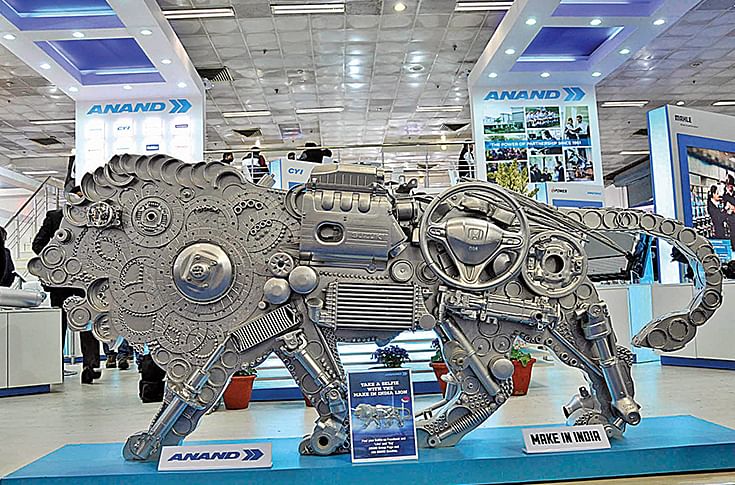
With so much turbulence in the automotive landscape, in India and globally, will the component lion roar in FY2020?
The government could continue to encourage EV manufacturing and adoption, appoint trade representatives at consulates to facilitate exports and incentivise companies to set up operations in India.
Industry bodies could contribute by:
- Working with Export Promotion Councils to identify target markets for exports
- Facilitating a cooperative supply chain in high-potential export markets
- Setting up incubation centres in metropolitan zones to promote innovation related to automation, connectivity, electric power and the shared-mobility economy (ACES)
- Conducting training and knowledge sessions on the impact of digital interventions
Some anchor actions for OEMs could include investing and collaborating with Tier 1 and Tier 2 component manufacturers, helping with rightsizing and upskilling or reskilling talent for them and building knowledge partnerships to embed digital capabilities in the organisation.
CEOs take on challenging times with cautious optimism
A CEO roundtable on how to manage the downturn saw a lively debate. As to why industry didn’t anticipate the downturn and what could it have done better to be prepared, Ashok Taneja, MD and CEO, Shriram Pistons & Rings, said, “The industry is reporting wholesale numbers (what OEMs sell to dealers) whereas the true measure of sales is actually retail sales. In the absence of retail sales data, the component industry works as per the forecast of OEMs. Perhaps, the OEMs were hopeful and continued to build production even though the vehicle weren't getting sold. If the OEMs change to retail sales reporting, we will be better informed and able to react much better.
Secondly, a lot of these factors which led to the slowdown happened suddenly and cumulatively. For example, the NPAs, NBFC crisis, change in axle load norms, and the consolidation of warehousing after GST were building up but they all came together sometime in September 2018. Along with this, the government started preparing for the elections well before they were actually announced. At present, there are Rs 50,000 crore worth of project payments implemented but not paid for. Such data was not available for the auto sector, which then didn’t get time to react well to the downturn.”
Dr Asha Ram Sihag, Secretary, Department of Heavy Industry, Ministry of Heavy Industries & Public Enterprises, Government of India said, “Every slowdown is an opportunity, slowdowns are the nursery of capitalism. If we don’t have a slowdown, then we are explicitly asking for a socialist economy. Learning to live with a slowdown and to welcome it as part of long business cycle activity. We need to internalise that if we need to mature as an economy that works on capitalist impulses.”
Expressing a counterview, Nikunj Sanghi, past president, FADA and managing director, JS Fourwheel Motors said, “I think we had seen the slowdown coming but we refused to accept and believe it. Because we refused to accept it, we kept building the capacities both on the manufacturing and dealerships side, and that impact is now seen by the industry. I think this slowdown is a blessing for the industry as it has woken us all to believe, yes, there is a slowdown and all the things we were doing were not correct and, can we correct them now?”
The convention ended on a cautiously optimistic note even as the industry knowingly braces for a tough year.
(This article was first published in the September 15, 2019 issue of Autocar Professional)
RELATED ARTICLES
RSB Group Prepares for Hyper-Growth: New Markets, Tech and Mission ₹10,000 Cr
From a small workshop in Jamshedpur to an engineering group with global reach, RSB Transmissions is preparing for its mo...
Beyond Helmets: NeoKavach Wants to Make Rider Airbags India’s Next Safety Habit
As premium motorcycles proliferate and riding culture evolves, an Indo-French venture is betting that wearable airbags, ...
Inside Mahindra Last Mile Mobility’s Rs 500 Crore Modular Platform Strategy
Mahindra Last Mile Mobility has launched the UDO, an electric three-wheeler built on a new Rs 500-crore modular platform...






 15 Oct 2019
15 Oct 2019
 4120 Views
4120 Views




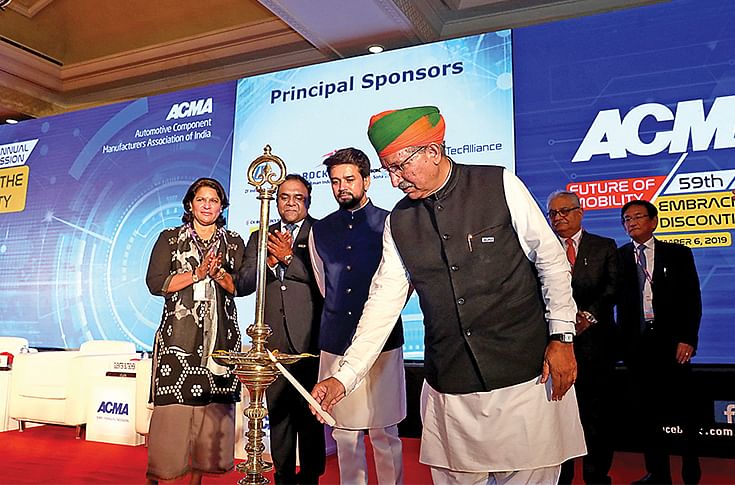
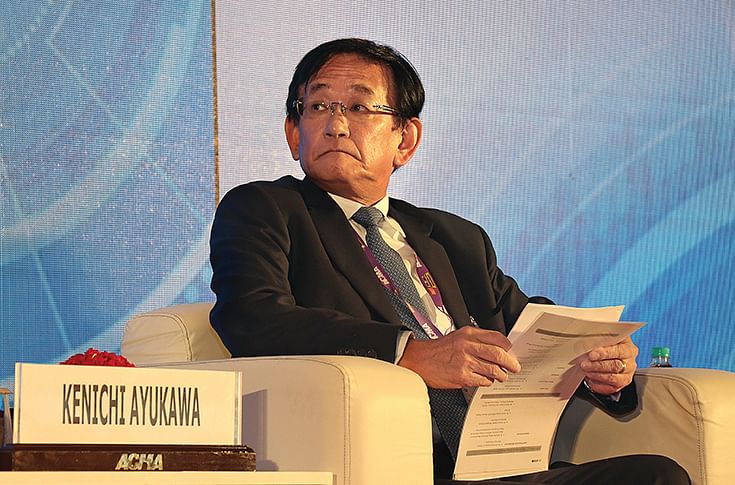
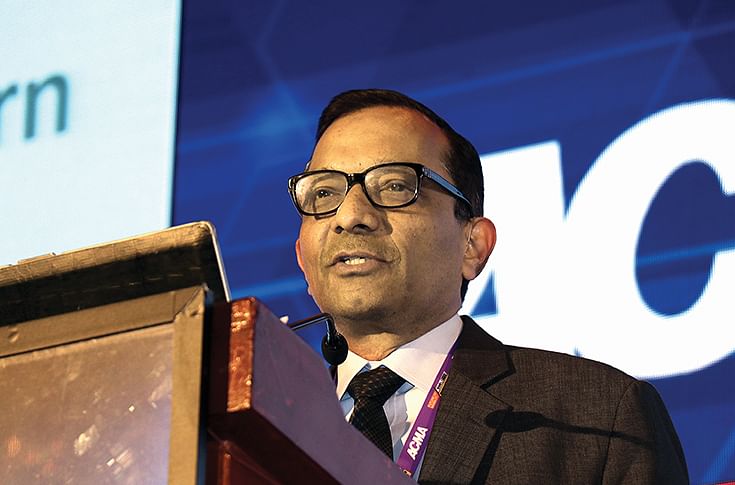
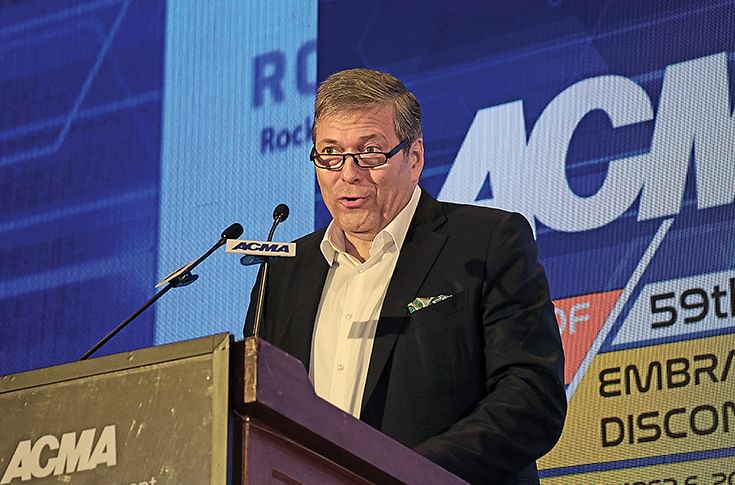
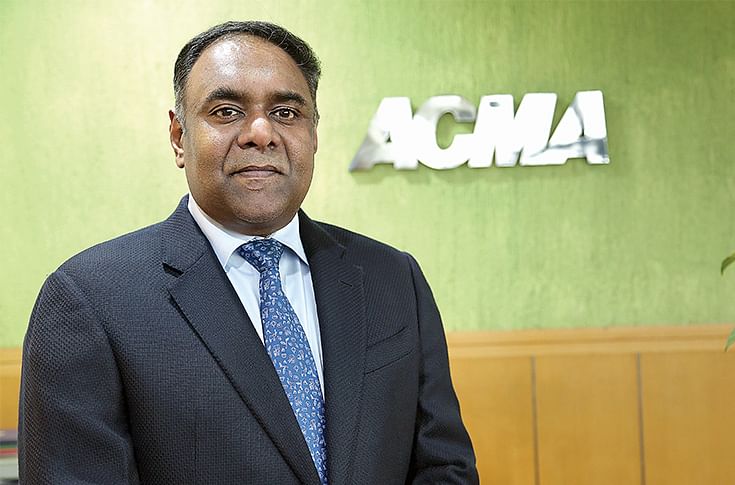
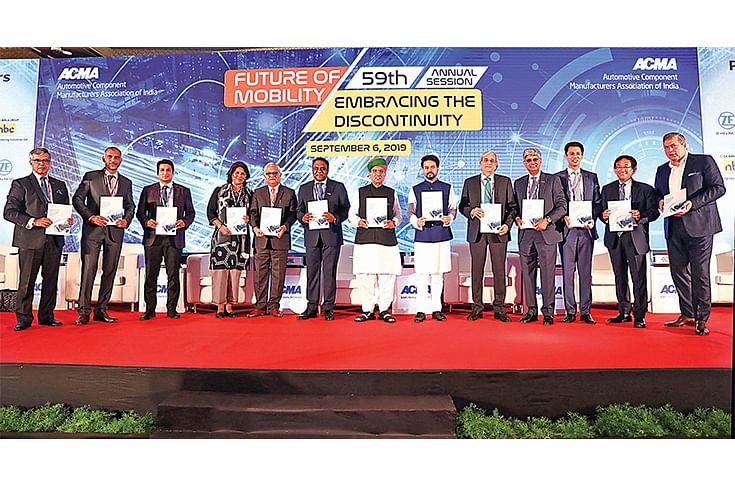
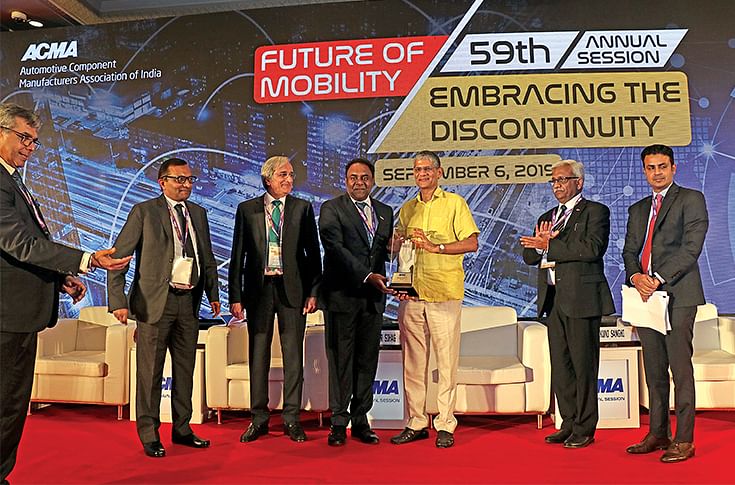
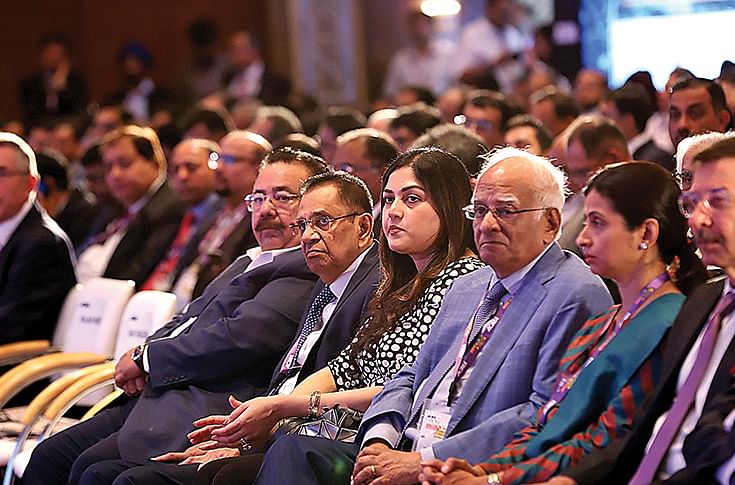

 Darshan Nakhwa
Darshan Nakhwa



 Shahkar Abidi
Shahkar Abidi

